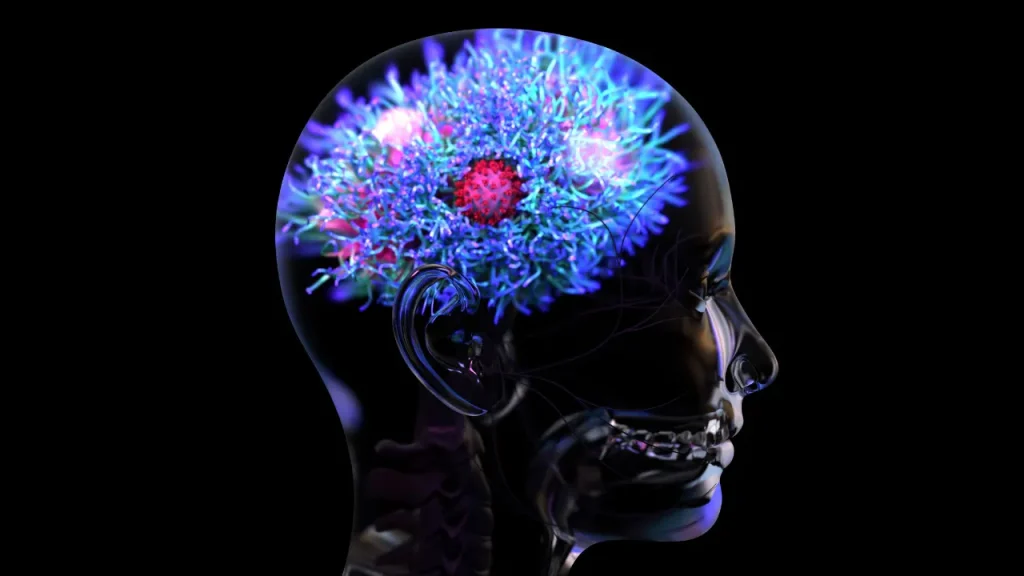Sudden confusion and memory loss are commonly known as delirium. It requires proactive management of symptoms; for example, promoting a safe and comfortable environment is vital. Discover five effective strategies to help individuals and caregivers navigate the challenges of delirium to improve clarity and cognitive well-being.
Delirium is a change in mental status that is marked by confusion, disorientation, and memory loss. It can come on suddenly and without warning, and often goes unrecognized. This is the result of the acute nature of its onset, making it hard to nail down precisely what’s wrong with someone (they might be fine one day, and then out of it the next) as well as the “varied approaches” to recognizing it.
That said, it’s widely understood that delirium is the result of pervasive disruption of brain activity. However, the exact causes of this disruption are complex and not induced by any singular symptom. And though symptoms can be understood within the general typology of manifested signs of “confusion,” they also differ from person to person.
Typically, delirium is associated with older adults, but you don’t have to be old to develop delirium: inflammation in the brain, neurotransmitter imbalances, certain types of medications, or even chronic stress may also induce it. Treatment was historically based on understanding delirium as “transient,” meaning focusing on palliative care until it passed. But it’s now understood that delirium needs to be treated promptly in order to avoid its grave complications: faster cognitive decline and significantly greater risk of dementia. Proactivity is key here, so keep reading to discover 5 ways to manage delirium.
You May Also Like:
Unlocking Mental Clarity: The Power of Omega 3 for Brain Fog
Protect Your Brain and Nerves with Omega-3 Phospholipids: 7 Powerful Benefits
Avoid Sudden Confusion and Memory Loss (Delirium): 5 Ways to Manage Symptoms is an original (LimitlessMindNews) article.
Manage sudden confusion and memory loss:
1. Identify underlying causes
The first way to manage delirium symptoms is to try, difficult as it may be, to trace its onset and treat things at the root. What has contributed to the delirium? Is there any medical history that might engender the likelihood of developing delirium? Asking these questions is important because, as the American Journal of Psychiatry notes, delirium “is the direct pathophysiological consequence of an underlying medical condition.” If a patient has, say, pneumonia that has induced delirium, it follows naturally that treating and managing their pneumonia will consequently help treat and manage their delirium. As the AJP concludes: “The primary treatment of delirium is identification and management of the underlying medical etiologies.”

Manage sudden confusion and memory loss:
2. Maintain a supportive environment
By nature, delirium alters the mind, leaving it confused and disoriented. This can acutely affect awareness of surroundings and comprehension of time and place. Dr. Esther Seunhee Oh notes that “a person with delirium may experience changes in their awareness of where they are.” Delirium sufferers exhibit altered consciousness. Their awareness and general cognition are occluded, and in their confusion, they may feel unable to make sense of or stay grounded in reality.
It’s important to help orient them to time and place, which may be done by maintaining a safe and supportive environment. The Cleveland Clinic recommends having the presence of loved ones around to converse (and “engage their memory”) and decorate (“with familiar objects” to “keep them connected to their surroundings”). Doing so helps the sufferer feel tethered to reality.
Manage sudden confusion and memory loss:
3. Physical activity
Delirium and physicality are bidirectionally related: as a 2020 study notes, “physical dysfunction is described as a risk factor and as a symptom of delirium.” More significantly, growing evidence has shown that “although delirium is catalogued as a neurocognitive disorder… it is also a motor disorder.” Physical activity is key here. It helps maintain muscle mass and strength, and research has even shown it can help improve cognitive function.
Moreover, prolonged sedentary lifestyle, as is prevalent among those hospitalized, has been shown to negatively affect brain function. To that end, studies have shown the ameliorative effects physical activity has in reducing the risk of developing delirium and reducing the length of suffering in its victims.

Manage sudden confusion and memory loss:
4. Nutrition
It’s well known that your health is contingent on good nutrition. This is especially so with cognitive health, as your brain needs fuel to function effectively. High-quality foods, like those high in B vitamins, lipids, and antioxidants, are important for protecting the brain against inflammation and oxidative stress.
As a 2014 review demonstrated, a bad diet can play a role in “predisposing or directly causing” delirium, as “many nutritional deficiencies or excesses” can “alter the way one thinks.” Digestion’s metabolic processes crucially contribute to important functions like oxygen distribution, which is critical to the brain getting the nutrients it needs. Eating well can help keep your brain healthy and protected against delirium. Equally so, re-introducing quality nutrients “can lead to resolution of delirium.”
Manage sudden confusion and memory loss:
5. Maintaining healthy sleep
A good night’s sleep does wonders for the body. Sleep is when the body repairs itself, heightens the immune system, and improves metabolism. As a 2012 study observes, delirium and sleep “often co-exist in hospitalized patients.” This can be the result of physical issues like “abnormalities of neurotransmitters” or inflammation, but also contingencies of hospitalization.
Just as poor sleep quality can leave your body weakened and susceptible to delirium, delirium can impede your body’s ability to fall asleep and restore itself. Good sleep habits can help keep you in a good position to protect yourself against delirium. It’s also recommended that delirium sufferers have “a darker, quieter environment at night for sleeping and natural light during the day” in order to allow sleep to heal the body and mind properly.

Manage sudden confusion and memory loss:
Kori Krill Oil’s Mind & Body Omega-3 may help
Adding supplementation like nootropics, or “smart drugs” focused on cognitive enhancement, to your diet may also help. Omega-3 fatty acids, a diverse family of polyunsaturated fats, are especially promising. To wit: omega-3 consumption may help fine-tune your cells’ absorption of nutrients, which in turn, may help facilitate the transportation of nutrients like oxygen from your red blood cells to your brain, which then finally converts this into much-needed energy. One such supplement that utilizes omega-3s’ promise in cognitive amelioration is Kori Krill Oil’s Mind & Body Omega-3.
Kori Krill uses omega-3s in the phospholipid molecular form. When you digest omega-3s, phospholipids help your body effectively break them down and process them through cell membranes, allowing your cells to efficiently absorb the nutrients and then transport them. In fact, a 2020 study examining “the anti-inflammatory effects of omega-3 fatty acids” in ventilated patients found that omega-3s “can actually reduce the risk of delirium.” In the studied patients, researchers noted “unusual variations of lipid metabolism” – a tell-tale sign of inflammation – as well as changes in the brain’s “microcirculation and neurotransmitter balance” in the blood-brain barrier.
Omega-3s address all those concerns – they can help lower lipid levels, improve cellular communication, regulate neurotransmitters, and move across the blood-brain barrier. And that’s not even to mention the additional ingredients in Kori Krill Oil’s Mind & Body Omega-3, like plant antioxidants lutein and zeaxanthin, which have been clinically studied to support memory and concentration.
Manage sudden confusion and memory loss:
Constant vigilance
Delirium can creep up on you, whether you’re old, young, ill, or healthy. Once affected, it’s a debilitating and devastating ailment. It’s paramount then that you keep your body up to the task of defending itself against delirium. Staying on top of any pre-existing conditions while keeping active, eating well, sleeping properly, and maintaining a safe and stable environment can help leave your body and mind well prepared. To do otherwise, to let distraction beget inattentiveness and absentmindedness toward your health, can only give delirium the leeway it needs to wreak its havoc.

Further Reading for Additional Reference:
New York Times: Vigilance About the Dangers of Delirium
Harvard Medical School: Delirium, Dementia, and the Brain
UCSF: To Prevent Delirium, Increase Mobility, Connection and Sleep
Scientific American: It’s Time to Take Delirium Seriously
Important Note: The information contained in this article is for general informational purposes only, and should not be construed as health or medical advice, nor is it intended to diagnose, prevent, treat, or cure any disease or health condition. Before embarking on any diet, fitness regimen, or program of nutritional supplementation, it is advisable to consult your healthcare professional in order to determine its safety and probable efficacy in terms of your individual state of health.
Regarding Nutritional Supplements Or Other Non-Prescription Health Products: If any nutritional supplements or other non-prescription health products are mentioned in the foregoing article, any claims or statements made about them have not been evaluated by the U.S. Food and Drug Administration, and such nutritional supplements or other health products are not intended to diagnose, treat, cure, or prevent any disease.